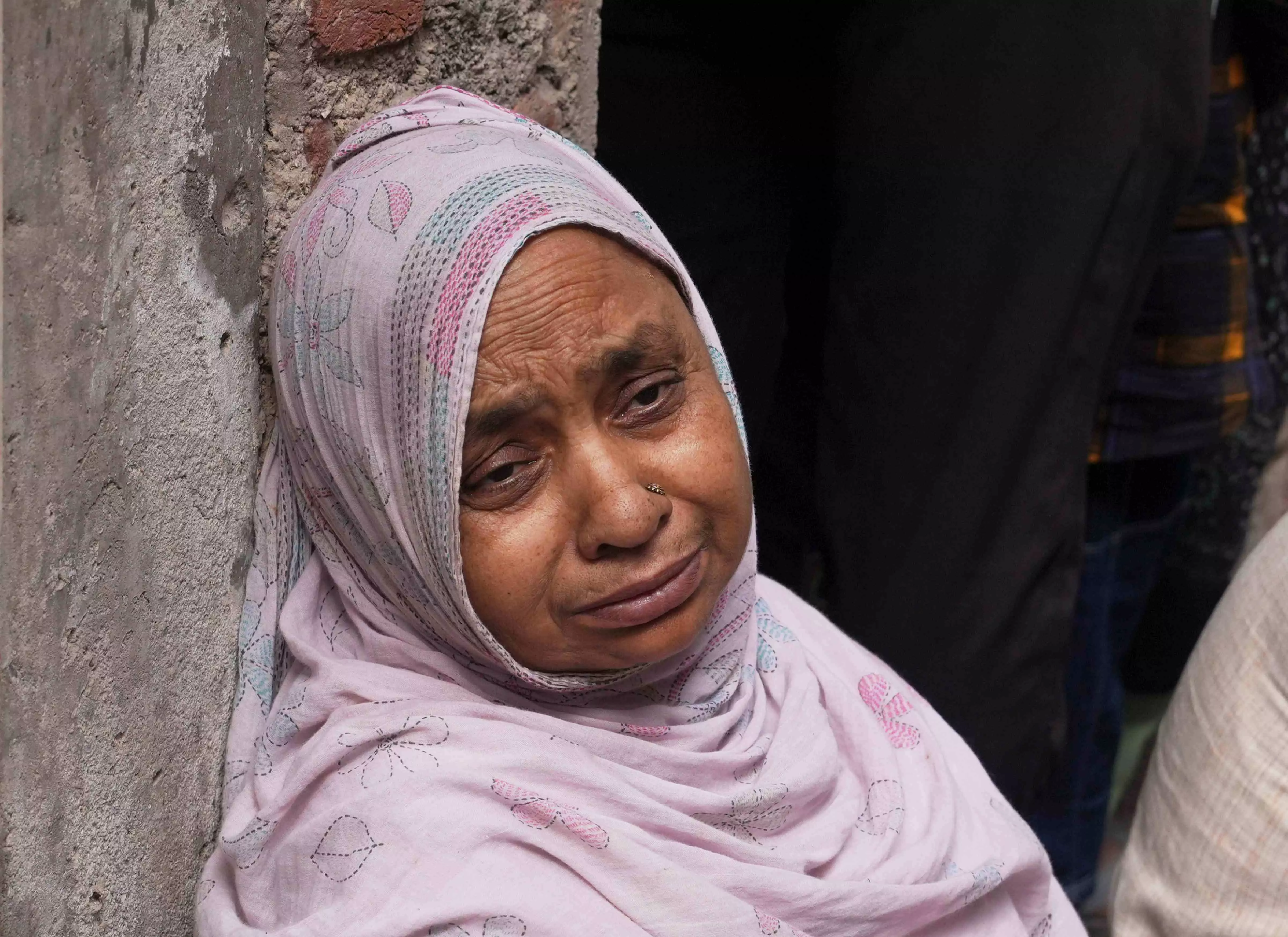'Lost an entire generation': 7 of family killed as building collapses in northeast Delhi

New Delhi: "We lost an entire generation of our family in just a moment," said a grieving Bhulan, brother of 60-year-old Tehsin, who along with his son, three grandchildren and two daughters-in-law was killed when a building collapsed in northeast Delhi's Mustafabad area in the early hours of Saturday. Bhulan recalled speaking to his brother on Friday evening. Little did he know that such a tragedy would strike them. "I spoke to my brother on Friday evening and everything seemed fine. My brother and his family lived in the area for 20 years without any trouble and then suddenly, this terrible tragedy struck," Bhulan said.
Eleven people died in the building collapse, including Teshin (60), the owner of the structure, his son Nazeem (30), Nazeem's wife Shahina (28), their three children -- Anas (6), Afreen (2) and Afan (2) -- and Tehsin's younger daughter-in-law, Chandni (23). The incident occurred around 3 am, a senior police officer said.Two brothers -- Danish (23) and Naved (17) -- were also among the victims, besides Reshma (38) and Ishaq (75). Eleven people were injured in the incident. Tehsin's sister, Sanjeeda (55), cried inconsolably sitting in front of the debris. "It's been hours and he is still not found. My entire family has been destroyed," she said, before the news of her brother's death came in. "Everyone was asleep when the building collapsed. I rushed here when I heard the news," she said. Tehsin, a property dealer, lived on the first floor of the building with his family. There were four shops on the ground floor and the rest of the flats were rented out to tenants. Six people were discharged from the hospital after receiving treatment, including Tehsin's son, Chand (25), while five people, including Tehsin's wife, Zeenat (58), remain under observation. Shehjad Ahmad lost his nephews, Danish and Naved, who lived on the third floor of the building with their parents. "My nephews were the breadwinners of the family. They ran the entire household," Ahmad said. While Danish worked as a scrap dealer, Naved, a student, used to take up odd jobs to help the family. Their mother, Rehana (38), and father, Shahid (45), are undergoing treatment.
"Shahid had to stop working after some chemical fell on one of his eyes during work. He was not working for the past several years since he could not see properly after 6 pm, leaving the two sons to earn for the family. How do we recover from this loss?" Ahmad said. Deceased Reshma's family, including her husband, Ahmed (45), and their children -- Alfez (20), Aliya (17) and Tanu (15) -- were living on the fourth floor. Reshma's brother, Sonu Abbas, said she was still alive when she was taken out of the rubble. "She got up, saw that her husband and children were safe and helped them out of the rubble," he said, adding that only after that she collapsed and passed away. Teams of the National Disaster Response Force (NDRF), Delhi Fire Services, Delhi Police and volunteers took part in the rescue efforts that went on for more than 12 hours at the site of the 20-year-old four-storey structure. A police source said construction work in "two-three shops" on the ground floor could have led to the collapse. Locals also said the construction work going on in a new shop could have triggered the collapse.
Chief Minister Rekha Gupta has ordered a probe into the incident and expressed grief. Information about the building collapse was received by the Dayalpur police station around 3:02 am. Police said a team was rushed to Gali No. 1, Shakti Vihar, where 22 people were reported to be buried under the debris. Talking to media reporters, NDRF DIG Mohsen Shahidi said, "We call this a 'pancake collapse' -- a particularly dangerous type where the chances of survival are minimal. Still we hope that lives that can be saved. We are actively searching." He added that it took time to clear the debris as the area is highly congested, making the rescue efforts challenging. The use of heavy machinery was limited due to space constraints, Shahidi said.



